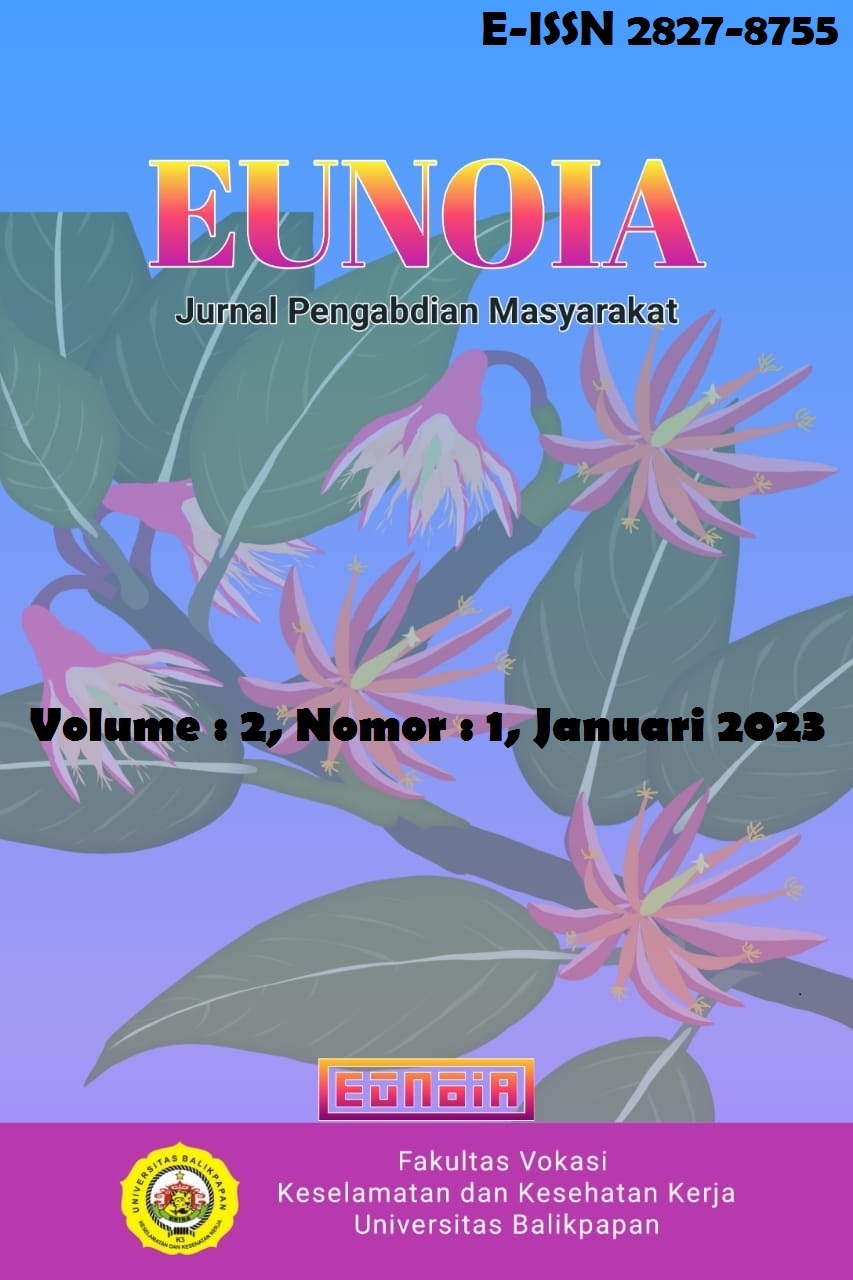SOCIALIZATION OF THE IMPORTANCE OF OHS IN VOCATIONAL SCHOOL OF INDONESIA BHAKTI
Keywords:
worker, Outreach, Occupational Health and Safety, work-related accidentsAbstract
Socialization is also an individual learning process in social life, life that is guided by norms. Norms are rules, principles, levels or standards that are fully accepted by society to regulate daily life and behavior, so that life feels safe and enjoyable. The norms themselves are still divided into several types such as religious norms, moral norms, legal norms and customs. this community service activity has had a good impact such as understanding and knowledge about OSH, workers now apply OSH while working and use the specified PPE so that workers will feel safe, comfortable and can prevent Occupational Accidents (KAK).
Occupational safety is the most important aspect of work. The use of personal protective equipment can protect all or part of the body against possible potential hazards/work accidents, and reduce the risk of disease due to accidents. Fire extinguishing is carried out according to the type of fire that occurs. Extinguishers must always be checked periodically. The methodology for this community service activity is in the form of socialization on Occupational Safety and Health (K3) given to the Bhakti Indonesia Vocational High School aimed at students so that this socialization can add insight into the importance of maintaining safety and health while working and can be applied onwards by workers.
Downloads
Published
How to Cite
Issue
Section
License
Authors who publish with this journal agree to the following terms:
- Authors retain copyright and grant the journal right of first publication with the work simultaneously licensed under a Creative Commons Attribution License that allows others to share the work with an acknowledgment of the work's authorship and initial publication in this journal.
- Authors are able to enter into separate, additional contractual arrangements for the non-exclusive distribution of the journal's published version of the work (e.g., post it to an institutional repository or publish it in a book), with an acknowledgment of its initial publication in this journal.
- Authors are permitted and encouraged to post their work online (e.g., in institutional repositories or on their website) prior to and during the submission process, as it can lead to productive exchanges, as well as earlier and greater citation of published work (See The Effect of Open Access).





